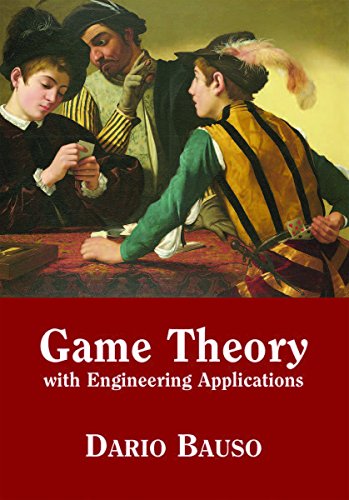

Most ebook files are in PDF format, so you can easily read them using various software such as Foxit Reader or directly on the Google Chrome browser.
Some ebook files are released by publishers in other formats such as .awz, .mobi, .epub, .fb2, etc. You may need to install specific software to read these formats on mobile/PC, such as Calibre.
Please read the tutorial at this link: https://ebookbell.com/faq
We offer FREE conversion to the popular formats you request; however, this may take some time. Therefore, right after payment, please email us, and we will try to provide the service as quickly as possible.
For some exceptional file formats or broken links (if any), please refrain from opening any disputes. Instead, email us first, and we will try to assist within a maximum of 6 hours.
EbookBell Team

4.8
44 reviewsThis unique book addresses the foundations of game theory, with an emphasis on the physical intuition behind the concepts, an analysis of design techniques, and a discussion of new trends in the study of cooperation and competition in large complex distributed systems.
Audience: This book is intended for undergraduate and graduate students and researchers in industrial, aeronautical, manufacturing, civil, mechanical, chemical, and electrical engineering. It is also designed for social scientists interested in quantitative methods for sociotechnical systems, biologists working on adaptation mechanisms and evolutionary dynamics, and physicists working on collective systems and synchronization phenomena.
Contents: List of Figures; List of Tables; List of Algorithms; Preface; List of Notation; Part I: Theory; Chapter 1: Introduction to Games; Chapter 2: Two-Person Zero-Sum Games; Chapter 3: Computation of Saddle-Points and Nash Equilibrium Solutions; Chapter 4: Refinement on Nash equilibrium Solutions, Stackelberg Equilibrium, and Pareto Optimality; Chapter 5: Coalitional Games; Chapter 6: Core, Shaply Value, Nucleolus; Chapter 7: Evolutionary Game Theory; Chapter 8: Replicator Dynamics and Learning in Games; Chapter 9: Differential Games; Chapter 10: Stochastic Games; Chapter 11: Games with Vector Payoffs: Approachability and Attainability; Chapter 12: Mean-Field Games; Part II: Applications; Chapter 13: Consensus in Multi-agent Systems; Chapter 14: Demand Side Management; Chapter 15: Synchronization of Power Generators; Chapter 16: Opinion Dynamics; Chapter 17: Bargaining; Chapter 18: Pedestrian Flow; Chapter 19: Supply Chain; Chapter 20: Population of Producers; Chapter 21: Cyber-Physical Systems; Appendix A: Mathematical Review; Appendix B: Optimization; Appendix C: Lyapunov Stability; Appendix D: Some Notions of Probability Theory; Appendix E: Stochastic Stability; Appendix F: Indistinguishability and Mean-Field Convergence; Bibliography; Index